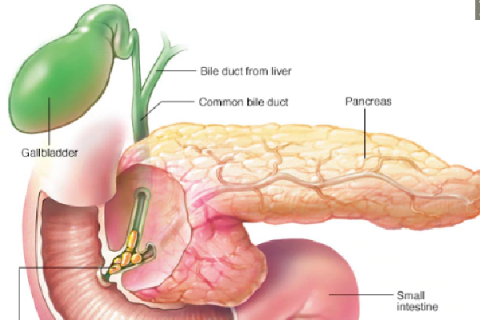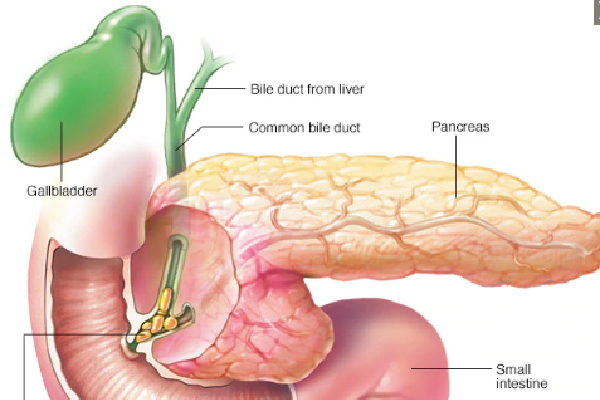Is autoimmune pancreatitis a pancreatic cancer?

In the past, autoimmune pancreatitis was often misdiagnosed as pancreatic cancer. Although these two diseases present similar signs and symptoms, the treatment methods are completely different. A correct diagnosis is important to make treatment more effective. Follow the following article of SignsSymptomsList to better understand this disease!
content
- 1. What is autoimmune pancreatitis?
- 2. Manifestations and symptoms
- 3. Subjects at risk of disease
- 3. Complications of the disease
- 4. How is the disease diagnosed?
- 5. Methods of disease treatment
1. What is autoimmune pancreatitis?
It is a chronic inflammatory disease caused by the body's own immune system attacking the pancreas. Thereby limiting or losing both exocrine and endocrine functions of the pancreas. Leads to consequences such as lack of digestive enzymes, diabetes due to lack of insulin, etc.
Autoimmune pancreatitis is classified into 2 types: Type 1 and Type 2 .
- Type 1: Also known as IgG4-associated pancreatitis, it usually affects multiple organs including the pancreas, bile ducts in the liver, salivary glands, kidneys, and lymph nodes.
- Type 2: Also known as idiopathic central ductal pancreatitis, it affects only the pancreas, although about one-third of people with type 2 autoimmune pancreatitis is associated with inflammatory bowel disease.
2. Manifestations and symptoms
This disease is difficult to diagnose because usually, it does not cause any symptoms. When symptoms are present, they are similar to those of pancreatic cancer, including:
- Dark urine
- Pale stools
- Yellow skin and eyes
- Pain in the upper or middle part of the abdomen
- Nausea and vomiting
- Tired, exhausted
- Loss of appetite or feeling full all the time
- Unexplained weight loss
- The most common sign of autoimmune pancreatitis is jaundice without abdominal pain, caused by blocked bile ducts.
See more: Acute pancreatitis: What to prepare before going to the doctor?
3. Subjects at risk of disease
- People with type 1 autoimmune pancreatitis are usually male and over the age of 60.
- People with type 2 autoimmune pancreatitis often present in both sexes. In addition, the patient has comorbid inflammatory bowel disease, especially duodenal ulcer, and is over 40 years old.

3. Complications of the disease
- Pancreatic failure: Autoimmune pancreatitis can affect the pancreas' ability to secrete digestive enzymes. Symptoms may include diarrhea, weight loss, metabolic bone disease, and vitamin or mineral deficiencies.
- Diabetes: The pancreas is an organ that produces insulin, which regulates blood sugar. So autoimmune pancreatitis can cause diabetes, and when you have diabetes, you may need treatment with oral medications or insulin injections.
- Pancreatic calcifications or stones.
4. How is the disease diagnosed?
Autoimmune pancreatitis is difficult to diagnose, because its signs and symptoms are very similar to those of pancreatic cancer. However, an accurate diagnosis of autoimmune pancreatitis or pancreatic cancer is extremely important. Because, undiagnosed pancreatic cancer can lead to delay or failure to receive timely surgery.
In people with autoimmune pancreatitis, the pancreas tends to increase in size, but there are also cases where the pancreas has a tumor-like mass. To confirm the diagnosis and identify the type of autoimmune pancreatitis, blood tests and imaging are needed.
- Imaging tests : CT, MRI , endoscopic ultrasonography (EUS) and endoscopic retrograde cholangiopancreatography (ERCP).
- Blood tests : IgG4 immunoglobulin levels. People with type 1 autoimmune pancreatitis will have high levels of IgG4 in their blood. However, testing positive does not necessarily mean you have the disease. A small number of people who are not sick also have high levels of IgG4 in their blood.
- Endoscopic core biopsy .
5. Methods of disease treatment
- Biliary stent placement. Before starting medication, doctors will sometimes insert a tube to drain the bile ducts (biliary stenting) in people with symptoms of obstructive jaundice. Usually, however, jaundice improves with steroid treatment. Sometimes drainage is recommended if a definitive diagnosis cannot be made.
- Steroids. Symptoms usually improve after a short course of prednisolone or prednisone. Some people even respond very quickly.
- Immunosuppressive drugs: About 30-50% of people relapse after treatment. To help reduce the serious side effects associated with long-term steroid use, your doctor may consider adding immunosuppressive medications.
See more: Cellcept immunosuppressant drug (Mycophenolate mofetil): Basic information
Other treatments include:
- Treatment of pancreatic insufficiency. If you don't have enough pancreatic enzymes, you may need an enzyme supplement.
- Treatment of diabetes. If you have diabetes, you will need appropriate treatment. It can be treated with oral medications or injectable insulin.
- Follow up with other agencies. Type 1 usually involves organs other than the pancreas, including enlarged lymph nodes and salivary glands, scarring of the bile ducts, hepatitis, and kidney disease. Although these signs may lessen or disappear completely with steroid therapy, we still need to continue to monitor them.
Autoimmune pancreatitis is a disease that is easily misdiagnosed. The disease can cause a variety of symptoms due to loss or decrease in the function of the pancreas. You should see your doctor to be examined and perform the necessary tests for diagnosis and treatment.
Doctor Dao Thi Thu Huong